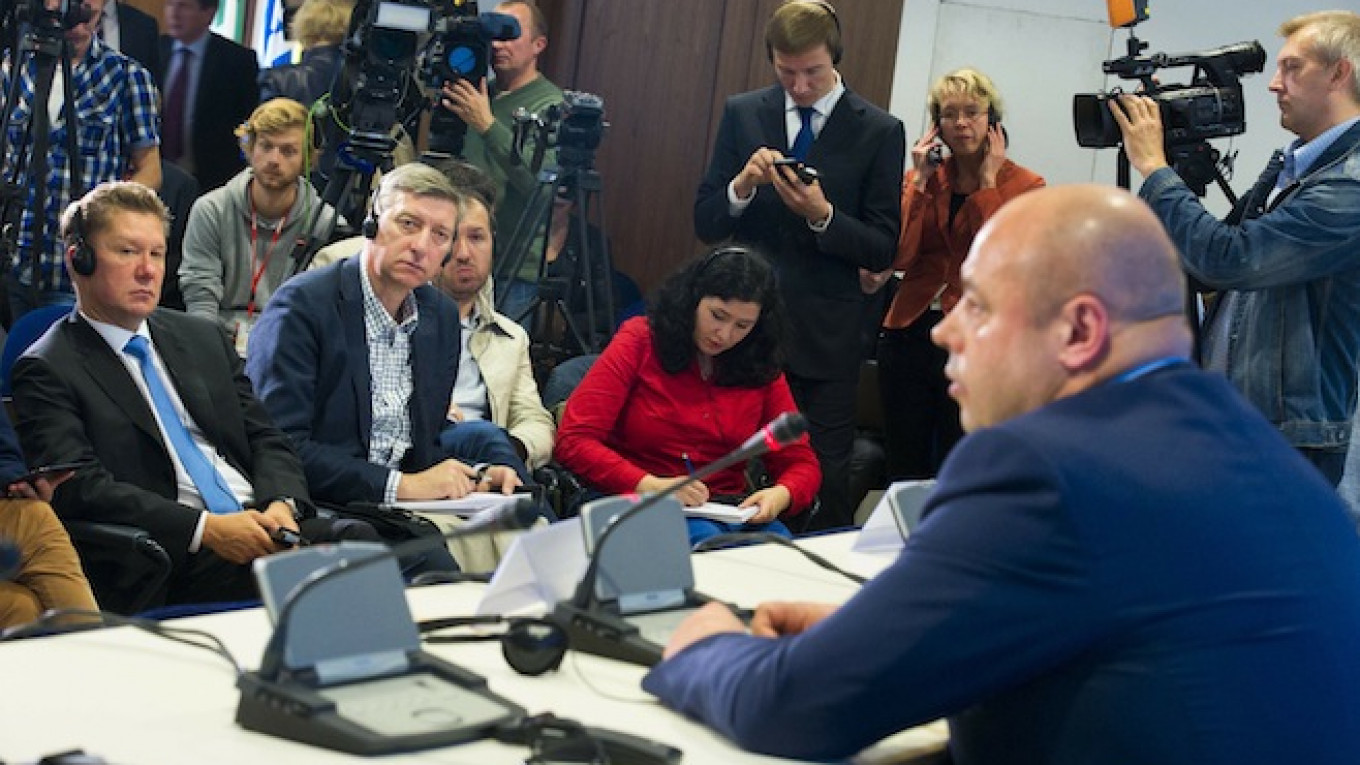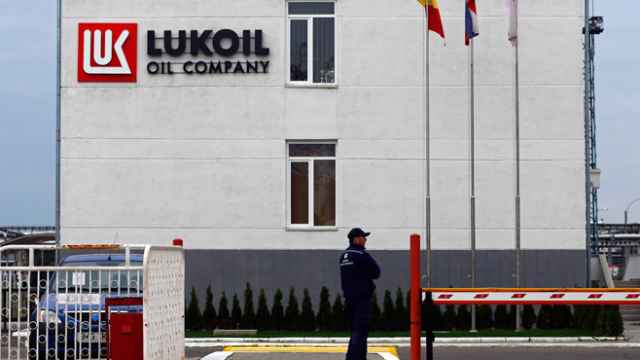Foreign banks' caution about Western sanctions means financing of the South Stream gas pipeline project has been slightly delayed, an official at Russian natural gas producer Gazprom said Wednesday.
However, Gazprom said its schedule for the project had not changed.
The pipeline is designed to circumvent Ukraine, with which Gazprom is locked in a dispute over gas pricing that prompted the company to halt deliveries in mid-June.
Russian news agency Interfax said last week that fundraising to begin building the underwater stretch of the pipeline from Russia across the Black Sea had been postponed until the first quarter of 2015.
Gazprom had planned to close a deal to raise financing for the first and second lines of South Stream, expected to cost about $40 billion, by December.
Following Western sanctions, many banks have put on ice initial plans to finance the project which would cross the Black Sea into southern Europe and cement Gazprom's position as the region's dominant gas supplier.
"First quarter of 2015 are cautious expectations," Alexander Ivannikov, deputy head of Gazprom's financial department.
"(The banks) are waiting for the sanctions to ease... (The delay) is related to caution, some more protracted process than usual. There is no force majeure, talks are under way," he said.
Despite the delays and European Union's objections to the project, which it has said violates its regulations, Gazprom said it has not changed the schedule of the project.
"Targeted timings for the completion of construction have not been changed so far," Gazprom's spokesman, Sergei Kupriyanov said.
Wintershall, part of German chemicals group , Italy's Eni and France's EDF also have stakes in the pipeline project.
The United States has imposed sectoral sanctions against Russian companies, including Gazprom, limiting their access to Western capital markets and technologies, over Moscow's role in Ukrainian conflict.
The punitive measures have already put a strain on Russia's economy, sending the ruble to all-time low against the dollar. ExxonMobil had to wind down its joint operations with Kremlin-controlled Rosneft in offshore Arctic due to sanctions.
A Gazprom official said that he expects gas prices unchanged in 2015 despite a 25 percent fall in oil prices since summer. However, he later clarified that the scenario assumes Russian Urals oil blend at $100 per barrel, compared with $84.2 currently.
On Tuesday, Gazprom said its second quarter net profit was up 13 percent to 227.6 billion rubles ($5.6 billion) boosted by foreign exchange gains.
A Message from The Moscow Times:
Dear readers,
We are facing unprecedented challenges. Russia's Prosecutor General's Office has designated The Moscow Times as an "undesirable" organization, criminalizing our work and putting our staff at risk of prosecution. This follows our earlier unjust labeling as a "foreign agent."
These actions are direct attempts to silence independent journalism in Russia. The authorities claim our work "discredits the decisions of the Russian leadership." We see things differently: we strive to provide accurate, unbiased reporting on Russia.
We, the journalists of The Moscow Times, refuse to be silenced. But to continue our work, we need your help.
Your support, no matter how small, makes a world of difference. If you can, please support us monthly starting from just $2. It's quick to set up, and every contribution makes a significant impact.
By supporting The Moscow Times, you're defending open, independent journalism in the face of repression. Thank you for standing with us.
Remind me later.






